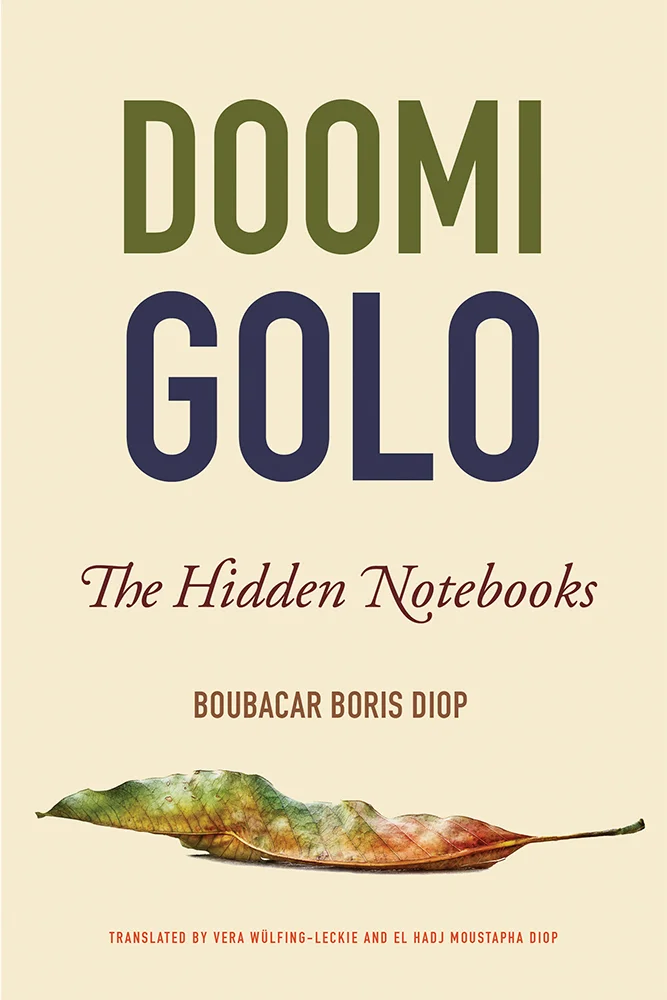Senegal: Doomi Golo: The Hidden Notebooks (Boubacar Boris Diop, trans. Vera Wülfing-Leckie & El Hadji Moustapha Diop)
Boubacar Boris Diop (b. 1946) was born in Dakar. He has worked primarily as a writer and journalist, founding the newspaper Sol in addition to publishing numerous works. He has taught literature and philosophy in high schools and for a while worked as technical advisor for the Cultural Ministry of Senegal.
Background: By the 7th century, evidence of various kingdoms exists, with that of Takrur growing in the 9th century, and Namandiru and the Jolof Empire taking precedence during the 13th and 14th centuries. The Almoravid dynasty introduced Islam to the Toucouleur and Soninke tribes, whilst other tribes were quite resistant. While the Jolof Empire flourished in the east, uniting many smaller kingdoms, over one third of the Senegambia region was enslaved between 1300 and 1900. After the death of Lele Fouli Fak, the empire collapsed in 1549. The Portuguese made contact in the mid-15th century, with the French, Dutch, and English all establishing trade. The slave trade in particular flourished. In the 19th century, Christianity was introduced while the French began to conquer the region, although the Senegalese resisted. In 1959, Senegal and the French Sudan were merged into the Mali Federation, which gained independence in 1960, but the Federation broke up later that year. Senegal became an independent nation, although the next two decades saw continued violence from the Portuguese. From 1965-1975, only one political party was allowed, but two new parties grew laster in the 1970s. There was a brief attempt to form a unity with The Gambia, but this was not successful. Fair elections and relative peace have persisted, although separatist factions have occasionally reared their heads.
Doomi Golo is one of the only books ever written in Wolof, an interesting choice given that there are few literate Wolof speakers. It was first translated into French (by the author) before the current translation, and some changes were made in the French version. The English text reflects both versions. The book itself is a sort of meta story: a grandfather, Nguirane Faye, is writing four notebooks for his grandson to find, detailing the life the grandson is missing out on in Senegal. The book, Doomi Golo, is the notebooks. Faye is an incredible narrator, he is able to both create a cohesive narrative of Senegal as it de-colonizes, whilst also expressing the true human loneliness at the end of life. While Faye’s grandson, Badou, has disappeared, presumably to Europe, Faye feels a necessity to document and preserve the experience of being in Senegal as all these significant political changes take place. He also details his own suffering at the hand of his dead son’s wife, a woman who makes no attempt to understand or care for him despite living in the same compound. Faye as narrator continually makes reference to his wish to communicate orally to his grandson, that that would be the more appropriate method of communication, as opposed to being dependent on the pen. The value of oral tradition remains a central issue throughout. So much is covered in this book, it’s really hard to adequately describe. From politics, to Senegalese literature, to the treatment of women, symbolic mythologies, it’s an amazing tome that manages to sum up much about Senegal. An absolutely wonderful novel, and most highly recommended.





